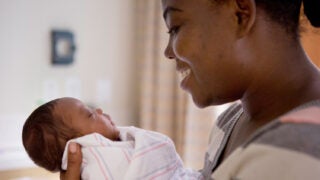Jette, a leader in the field, will address USC Division of Biokinesiology and Physical Therapy graduates in May.
Physical Therapy
News Listing
Pre-and post-operative physical therapy treatment can improve gender-affirming surgical outcomes, giving transgender individuals a chance to get back to the activities they love.
Ebonee Stephens wanted to become a physical therapist since she was 10 years old, but that seemed nearly impossible in a field where only 5% of practitioners are Black.
USC researchers are looking at the connection between gut microbiome dysregulation and Parkinson’s disease to better understand how exercise could improve outcomes.
Students on the hybrid pathway take the same courses as their residential counterparts, but through a mix of synchronous and asynchronous content.
Stephanie Contreras will be the first person in her family to attend college — and the leap doesn’t look so formidable, thanks to the mentorship of USC student Natalia Barajas.
USC researchers study how combining two rehabilitation approaches might improve outcomes for survivors of stroke who are having trouble getting around.
The goal of the plan, which will be revised every academic year, is to create a welcoming, inclusive educational environment for everyone.
How well a patient will be able to get around in the world after the amputation also should be considered, a USC multidisciplinary health care team argues.
Premature babies get lots of attention in the neonatal ICU. USC’s Stacey Dusing, a pediatric physical therapist, is conducting research on the best ways to help them thrive at home — starting with play.







